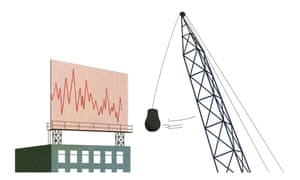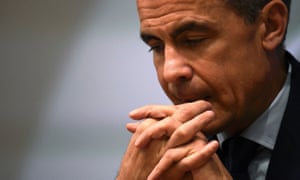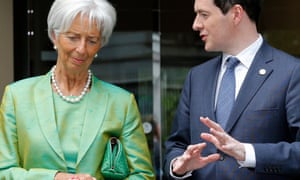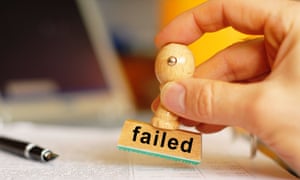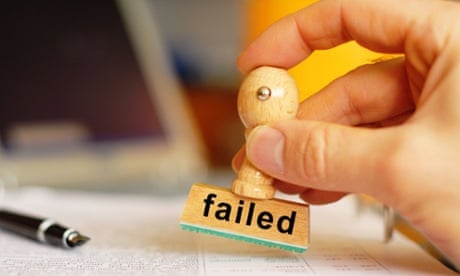There are 13,000 business schools on Earth. That’s 13,000 too many. And I should know – I’ve taught in them for 20 years. By Martin Parker in The Guardian
Business schools have huge influence, yet they are also widely regarded to be intellectually fraudulent places, fostering a culture of short-termism and greed. (There is a whole genre of jokes about what MBA – Master of Business Administration – really stands for: “Mediocre But Arrogant”, “Management by Accident”, “More Bad Advice”, “Master Bullshit Artist” and so on.) Critics of business schools come in many shapes and sizes: employers complain that graduates lack practical skills, conservative voices scorn the arriviste MBA, Europeans moan about Americanisation, radicals wail about the concentration of power in the hands of the running dogs of capital. Since 2008, many commentators have also suggested that business schools were complicit in producing the crash.
Having taught in business schools for 20 years, I have come to believe that the best solution to these problems is to shut down business schools altogether. This is not a typical view among my colleagues. Even so, it is remarkable just how much criticism of business schools over the past decade has come from inside the schools themselves. Many business school professors, particularly in north America, have argued that their institutions have gone horribly astray. B-schools have been corrupted, they say, by deans following the money, teachers giving the punters what they want, researchers pumping out paint-by-numbers papers for journals that no one reads and students expecting a qualification in return for their cash (or, more likely, their parents’ cash). At the end of it all, most business-school graduates won’t become high-level managers anyway, just precarious cubicle drones in anonymous office blocks.
These are not complaints from professors of sociology, state policymakers or even outraged anti-capitalist activists. These are views in books written by insiders, by employees of business schools who themselves feel some sense of disquiet or even disgust at what they are getting up to. Of course, these dissenting views are still those of a minority. Most work within business schools is blithely unconcerned with any expression of doubt, participants being too busy oiling the wheels to worry about where the engine is going. Still, this internal criticism is loud and significant.
The problem is that these insiders’ dissent has become so thoroughly institutionalised within the well-carpeted corridors that it now passes unremarked, just an everyday counterpoint to business as usual. Careers are made by wailing loudly in books and papers about the problems with business schools. The business school has been described by two insiders as “a cancerous machine spewing out sick and irrelevant detritus”. Even titles such as Against Management, Fucking Management and The Greedy Bastard’s Guide to Business appear not to cause any particular difficulties for their authors. I know this, because I wrote the first two. Frankly, the idea that I was permitted to get away with this speaks volumes about the extent to which this sort of criticism means anything very much at all. In fact, it is rewarded, because the fact that I publish is more important than what I publish.
Most solutions to the problem of the B-school shy away from radical restructuring, and instead tend to suggest a return to supposedly more traditional business practices, or a form of moral rearmament decorated with terms such as “responsibility” and “ethics”. All of these suggestions leave the basic problem untouched, that the business school only teaches one form of organising – market managerialism.
That’s why I think that we should call in the bulldozers and demand an entirely new way of thinking about management, business and markets. If we want those in power to become more responsible, then we must stop teaching students that heroic transformational leaders are the answer to every problem, or that the purpose of learning about taxation laws is to evade taxation, or that creating new desires is the purpose of marketing. In every case, the business school acts as an apologist, selling ideology as if it were science.
Universities have been around for a millenium, but the vast majority of business schools only came into existence in the last century. Despite loud and continual claims that they were a US invention, the first was probably the École Supérieure de Commerce de Paris, founded in 1819 as a privately funded attempt to produce a grande école for business. A century later, hundreds of business schools had popped up across Europe and the US, and from the 1950s onwards, they began to grow rapidly in other parts of the world.
In 2011, the Association to Advance Collegiate Schools of Business estimated that there were then nearly 13,000 business schools in the world. India alone is estimated to have 3,000 private schools of business. Pause for a moment, and consider that figure. Think about the huge numbers of people employed by those institutions, about the armies of graduates marching out with business degrees, about the gigantic sums of money circulating in the name of business education. (In 2013, the top 20 US MBA programmes already charged at least $100,000 (£72,000). At the time of writing, London Business School is advertising a tuition fee of £84,500 for its MBA.) No wonder that the bandwagon keeps rolling.
For the most part, business schools all assume a similar form. The architecture is generic modern – glass, panel, brick. Outside, there’s some expensive signage offering an inoffensive logo, probably in blue, probably with a square on it. The door opens, automatically. Inside, there’s a female receptionist dressed office-smart. Some abstract art hangs on the walls, and perhaps a banner or two with some hopeful assertions: “We mean business.” “Teaching and Research for Impact.” A big screen will hang somewhere over the lobby, running a Bloomberg news ticker and advertising visiting speakers and talks about preparing your CV. Shiny marketing leaflets sit in dispensing racks, with images of a diverse tableau of open-faced students on the cover. On the leaflets, you can find an alphabet of mastery: MBA, MSc Management, MSc Accounting, MSc Management and Accounting, MSc Marketing, MSc International Business, MSc Operations Management.
There will be plush lecture theatres with thick carpet, perhaps named after companies or personal donors. The lectern bears the logo of the business school. In fact, pretty much everything bears the weight of the logo, like someone who worries their possessions might get stolen and so marks them with their name. Unlike some of the shabby buildings in other parts of the university, the business school tries hard to project efficiency and confidence. The business school knows what it is doing and has its well-scrubbed face aimed firmly at the busy future. It cares about what people think of it.
Even if the reality isn’t always as shiny – if the roof leaks a little and the toilet is blocked – that is what the business-school dean would like to think that their school was like, or what they would want their school to be. A clean machine for turning income from students into profits.
What do business schools actually teach? This is a more complicated question than it first appears. Much writing on education has explored the ways in which a “hidden curriculum” supplies lessons to students without doing so explicitly. From the 1970s onwards, researchers explored how social class, gender, ethnicity, sexuality and so on were being implicitly taught in the classroom. This might involve segregating students into separate classes – the girls doing domestic science and the boys doing metalwork, say – which, in turn, implies what is natural or appropriate for different groups of people. The hidden curriculum can be taught in other ways too, by the ways in which teaching and assessment are practised, or through what is or isn’t included in the curriculum. The hidden curriculum tells us what matters and who matters, which places are most important and what topics can be ignored.
Illustration: Michael Kirkham
In many countries, a lot of work has been done on trying to deal with these issues. Materials on black history, women in science or pop songs as poetry are now fairly routine. That doesn’t mean that the hidden curriculum is no longer a problem, but at least in many of the more enlightened educational systems, it is not now routinely assumed that there is one history, one set of actors, one way of telling the story.
But in the business school, both the explicit and hidden curriculums sing the same song. The things taught and the way that they are taught generally mean that the virtues of capitalist market managerialism are told and sold as if there were no other ways of seeing the world.
If we educate our graduates in the inevitability of tooth-and-claw capitalism, it is hardly surprising that we end up with justifications for massive salary payments to people who take huge risks with other people’s money. If we teach that there is nothing else below the bottom line, then ideas about sustainability, diversity, responsibility and so on become mere decoration. The message that management research and teaching often provides is that capitalism is inevitable, and that the financial and legal techniques for running capitalism are a form of science. This combination of ideology and technocracy is what has made the business school into such an effective, and dangerous, institution.
We can see how this works if we look a bit more closely at the business-school curriculum and how it is taught. Take finance, for instance. This is a field concerned with understanding how people with money invest it. It assumes that there are people with money or capital that can be used as security for money, and hence it also assumes substantial inequalities of income and wealth. The greater the inequalities within any given society, the greater the interest in finance, as well as the market in luxury yachts. Finance academics almost always assume that earning rent on capital (however it was acquired) is a legitimate and perhaps even praiseworthy activity, with skilful investors being lionised for their technical skills and success. The purpose of this form of knowledge is to maximise the rent from wealth, often by developing mathematical or legal mechanisms that can multiply it. Successful financial strategies are those that produce the maximum return in the shortest period, and hence that further exacerbate the social inequalities that made them possible in the first place.
Or consider human resource management. This field applies theories of rational egoism – roughly the idea that people act according to rational calculations about what will maximise their own interest – to the management of human beings in organisations. The name of the field is telling, since it implies that human beings are akin to technological or financial resources insofar as they are an element to be used by management in order to produce a successful organisation. Despite its use of the word, human resource management is not particularly interested in what it is like to be a human being. Its object of interest are categories – women, ethnic minorities, the underperforming employee – and their relationship to the functioning of the organisation. It is also the part of the business school most likely to be dealing with the problem of organised resistance to management strategies, usually in the form of trade unions. And in case it needs saying, human resource management is not on the side of the trade union. That would be partisan. It is a function which, in its most ambitious manifestation, seeks to become “strategic”, to assist senior management in the formulation of their plans to open a factory here, or close a branch office there.
A similar kind of lens could be applied to other modules found in most business schools – accounting, marketing, international business, innovation, logistics – but I’ll conclude with business ethics and corporate social responsibility – pretty much the only areas within the business school that have developed a sustained critique of the consequences of management education and practice. These are domains that pride themselves on being gadflies to the business school, insisting that its dominant forms of education, teaching and research require reform. The complaints that propel writing and teaching in these areas are predictable but important – sustainability, inequality, the production of graduates who are taught that greed is good.
The problem is that business ethics and corporate social responsibility are subjects used as window dressing in the marketing of the business school, and as a fig leaf to cover the conscience of B-school deans – as if talking about ethics and responsibility were the same as doing something about it. They almost never systematically address the simple idea that since current social and economic relations produce the problems that ethics and corporate social responsibility courses treat as subjects to be studied, it is those social and economic relations that need to be changed.
You might well think that each of these areas of research and teaching are innocuous enough in themselves, and collectively they just appear to cover all the different dimensions of business activity – money, people, technology, transport, selling and so on. But it is worth spelling out the shared assumptions of every subject studied at business school.
The first thing that all these areas share is a powerful sense that market managerial forms of social order are desirable. The acceleration of global trade, the use of market mechanisms and managerial techniques, the extension of technologies such as accounting, finance and operations are not routinely questioned. This is a progressive account of the modern world, one that relies on the promise of technology, choice, plenty and wealth. Within the business school, capitalism is assumed to be the end of history, an economic model that has trumped all the others, and is now taught as science, rather than ideology.
The second is the assumption that human behaviour – of employees, customers, managers and so on – is best understood as if we are all rational egoists. This provides a set of background assumptions that allow for the development of models of how human beings might be managed in the interests of the business organisation. Motivating employees, correcting market failures, designing lean management systems or persuading consumers to spend money are all instances of the same sort of problem. The foregrounded interest here is that of the person who wants control, and the people who are the objects of that interest can then be treated as people who can be manipulated.
The final similarity I want to point to concerns the nature of the knowledge being produced and disseminated by the business school itself. Because it borrows the gown and mortarboard of the university, and cloaks its knowledge in the apparatus of science – journals, professors, big words – it is relatively easy to imagine that the knowledge the business school sells and the way that it sells it somehow less vulgar and stupid than it really is.
The easiest summary of all of the above, and one that would inform most people’s understandings of what goes on in the B-school, is that they are places that teach people how to get money out of the pockets of ordinary people and keep it for themselves. In some senses, that’s a description of capitalism, but there is also a sense here that business schools actually teach that “greed is good”. As Joel M Podolny, the former dean of Yale School of Management, once opined: “The way business schools today compete leads students to ask, ‘What can I do to make the most money?’ and the manner in which faculty members teach allows students to regard the moral consequences of their actions as mere afterthoughts.”
In many countries, a lot of work has been done on trying to deal with these issues. Materials on black history, women in science or pop songs as poetry are now fairly routine. That doesn’t mean that the hidden curriculum is no longer a problem, but at least in many of the more enlightened educational systems, it is not now routinely assumed that there is one history, one set of actors, one way of telling the story.
But in the business school, both the explicit and hidden curriculums sing the same song. The things taught and the way that they are taught generally mean that the virtues of capitalist market managerialism are told and sold as if there were no other ways of seeing the world.
If we educate our graduates in the inevitability of tooth-and-claw capitalism, it is hardly surprising that we end up with justifications for massive salary payments to people who take huge risks with other people’s money. If we teach that there is nothing else below the bottom line, then ideas about sustainability, diversity, responsibility and so on become mere decoration. The message that management research and teaching often provides is that capitalism is inevitable, and that the financial and legal techniques for running capitalism are a form of science. This combination of ideology and technocracy is what has made the business school into such an effective, and dangerous, institution.
We can see how this works if we look a bit more closely at the business-school curriculum and how it is taught. Take finance, for instance. This is a field concerned with understanding how people with money invest it. It assumes that there are people with money or capital that can be used as security for money, and hence it also assumes substantial inequalities of income and wealth. The greater the inequalities within any given society, the greater the interest in finance, as well as the market in luxury yachts. Finance academics almost always assume that earning rent on capital (however it was acquired) is a legitimate and perhaps even praiseworthy activity, with skilful investors being lionised for their technical skills and success. The purpose of this form of knowledge is to maximise the rent from wealth, often by developing mathematical or legal mechanisms that can multiply it. Successful financial strategies are those that produce the maximum return in the shortest period, and hence that further exacerbate the social inequalities that made them possible in the first place.
Or consider human resource management. This field applies theories of rational egoism – roughly the idea that people act according to rational calculations about what will maximise their own interest – to the management of human beings in organisations. The name of the field is telling, since it implies that human beings are akin to technological or financial resources insofar as they are an element to be used by management in order to produce a successful organisation. Despite its use of the word, human resource management is not particularly interested in what it is like to be a human being. Its object of interest are categories – women, ethnic minorities, the underperforming employee – and their relationship to the functioning of the organisation. It is also the part of the business school most likely to be dealing with the problem of organised resistance to management strategies, usually in the form of trade unions. And in case it needs saying, human resource management is not on the side of the trade union. That would be partisan. It is a function which, in its most ambitious manifestation, seeks to become “strategic”, to assist senior management in the formulation of their plans to open a factory here, or close a branch office there.
A similar kind of lens could be applied to other modules found in most business schools – accounting, marketing, international business, innovation, logistics – but I’ll conclude with business ethics and corporate social responsibility – pretty much the only areas within the business school that have developed a sustained critique of the consequences of management education and practice. These are domains that pride themselves on being gadflies to the business school, insisting that its dominant forms of education, teaching and research require reform. The complaints that propel writing and teaching in these areas are predictable but important – sustainability, inequality, the production of graduates who are taught that greed is good.
The problem is that business ethics and corporate social responsibility are subjects used as window dressing in the marketing of the business school, and as a fig leaf to cover the conscience of B-school deans – as if talking about ethics and responsibility were the same as doing something about it. They almost never systematically address the simple idea that since current social and economic relations produce the problems that ethics and corporate social responsibility courses treat as subjects to be studied, it is those social and economic relations that need to be changed.
You might well think that each of these areas of research and teaching are innocuous enough in themselves, and collectively they just appear to cover all the different dimensions of business activity – money, people, technology, transport, selling and so on. But it is worth spelling out the shared assumptions of every subject studied at business school.
The first thing that all these areas share is a powerful sense that market managerial forms of social order are desirable. The acceleration of global trade, the use of market mechanisms and managerial techniques, the extension of technologies such as accounting, finance and operations are not routinely questioned. This is a progressive account of the modern world, one that relies on the promise of technology, choice, plenty and wealth. Within the business school, capitalism is assumed to be the end of history, an economic model that has trumped all the others, and is now taught as science, rather than ideology.
The second is the assumption that human behaviour – of employees, customers, managers and so on – is best understood as if we are all rational egoists. This provides a set of background assumptions that allow for the development of models of how human beings might be managed in the interests of the business organisation. Motivating employees, correcting market failures, designing lean management systems or persuading consumers to spend money are all instances of the same sort of problem. The foregrounded interest here is that of the person who wants control, and the people who are the objects of that interest can then be treated as people who can be manipulated.
The final similarity I want to point to concerns the nature of the knowledge being produced and disseminated by the business school itself. Because it borrows the gown and mortarboard of the university, and cloaks its knowledge in the apparatus of science – journals, professors, big words – it is relatively easy to imagine that the knowledge the business school sells and the way that it sells it somehow less vulgar and stupid than it really is.
The easiest summary of all of the above, and one that would inform most people’s understandings of what goes on in the B-school, is that they are places that teach people how to get money out of the pockets of ordinary people and keep it for themselves. In some senses, that’s a description of capitalism, but there is also a sense here that business schools actually teach that “greed is good”. As Joel M Podolny, the former dean of Yale School of Management, once opined: “The way business schools today compete leads students to ask, ‘What can I do to make the most money?’ and the manner in which faculty members teach allows students to regard the moral consequences of their actions as mere afterthoughts.”
Illustration: Michael Kirkham
This picture is, to some extent, backed up by research, although some of this is of dubious quality. There are various surveys of business-school students that suggest that they have an instrumental approach to education; that is to say, they want what marketing and branding tells them that they want. In terms of the classroom, they expect the teaching of uncomplicated and practical concepts and tools that they deem will be helpful to them in their future careers. Philosophy is for the birds.
As someone who has taught in business schools for decades, this sort of finding doesn’t surprise me, though others suggest rather more incendiary findings. One US survey compared MBA students to people who were imprisoned in low-security prisons and found that the latter were more ethical. Another suggested that the likelihood of committing some form of corporate crime increased if the individual concerned had experience of graduate business education, or military service. (Both careers presumably involve absolving responsibility to an organisation.) Other surveys suggest that students come in believing in employee wellbeing and customer satisfaction and leave thinking that shareholder value is the most important issue, and that business-school students are more likely to cheat than students in other subjects.
Whether the causes and effects (or indeed the findings) are as neat as surveys like this might suggest is something that I doubt, but it would be equally daft to suggest that the business school has no effect on its graduates. Having an MBA might not make a student greedy, impatient or unethical, but both the B-school’s explicit and hidden curriculums do teach lessons. Not that these lessons are acknowledged when something goes wrong, because then the business school usually denies all responsibility. That’s a tricky position, though, because, as a 2009 Economist editorial put it, “You cannot claim that your mission is to ‘educate the leaders who make a difference to the world’ and then wash your hands of your alumni when the difference they make is malign”.
After the 2007 crash, there was a game of pass-the-blame-parcel going on, so it’s not surprising that most business-school deans were also trying to blame consumers for borrowing too much, the bankers for behaving so riskily, rotten apples for being so bad and the system for being, well, the system. Who, after all, would want to claim that they merely taught greed?
The sorts of doors to knowledge we find in universities are based on exclusions. A subject is made up by teaching this and not that, about space (geography) and not time (history), about collectives of people (sociology) and not about individuals (psychology), and so on. Of course, there are leakages and these are often where the most interesting thinking happens, but this partitioning of the world is constitutive of any university discipline. We cannot study everything, all the time, which is why there are names of departments over the doors to buildings and corridors.
However, the B-school is an even more extreme case. It is constituted through separating commercial life from the rest of life, but then undergoes a further specialisation. The business school assumes capitalism, corporations and managers as the default form of organisation, and everything else as history, anomaly, exception, alternative. In terms of curriculum and research, everything else is peripheral.
Most business schools exist as parts of universities, and universities are generally understood as institutions with responsibilities to the societies they serve. Why then do we assume that degree courses in business should only teach one form of organisation – capitalism – as if that were the only way in which human life could be arranged?
The sort of world that is being produced by the market managerialism that the business school sells is not a pleasant one. It’s a sort of utopia for the wealthy and powerful, a group that the students are encouraged to imagine themselves joining, but such privilege is bought at a very high cost, resulting in environmental catastrophe, resource wars and forced migration, inequality within and between countries, the encouragement of hyper-consumption as well as persistently anti-democratic practices at work.
Selling the business school works by ignoring these problems, or by mentioning them as challenges and then ignoring them in the practices of teaching and research. If we want to be able to respond to the challenges that face human life on this planet, then we need to research and teach about as many different forms of organising as we are able to collectively imagine. For us to assume that global capitalism can continue as it is means to assume a path to destruction. So if we are going to move away from business as usual, then we also need to radically reimagine the business school as usual. And this means more than pious murmurings about corporate social responsibility. It means doing away with what we have, and starting again.
This picture is, to some extent, backed up by research, although some of this is of dubious quality. There are various surveys of business-school students that suggest that they have an instrumental approach to education; that is to say, they want what marketing and branding tells them that they want. In terms of the classroom, they expect the teaching of uncomplicated and practical concepts and tools that they deem will be helpful to them in their future careers. Philosophy is for the birds.
As someone who has taught in business schools for decades, this sort of finding doesn’t surprise me, though others suggest rather more incendiary findings. One US survey compared MBA students to people who were imprisoned in low-security prisons and found that the latter were more ethical. Another suggested that the likelihood of committing some form of corporate crime increased if the individual concerned had experience of graduate business education, or military service. (Both careers presumably involve absolving responsibility to an organisation.) Other surveys suggest that students come in believing in employee wellbeing and customer satisfaction and leave thinking that shareholder value is the most important issue, and that business-school students are more likely to cheat than students in other subjects.
Whether the causes and effects (or indeed the findings) are as neat as surveys like this might suggest is something that I doubt, but it would be equally daft to suggest that the business school has no effect on its graduates. Having an MBA might not make a student greedy, impatient or unethical, but both the B-school’s explicit and hidden curriculums do teach lessons. Not that these lessons are acknowledged when something goes wrong, because then the business school usually denies all responsibility. That’s a tricky position, though, because, as a 2009 Economist editorial put it, “You cannot claim that your mission is to ‘educate the leaders who make a difference to the world’ and then wash your hands of your alumni when the difference they make is malign”.
After the 2007 crash, there was a game of pass-the-blame-parcel going on, so it’s not surprising that most business-school deans were also trying to blame consumers for borrowing too much, the bankers for behaving so riskily, rotten apples for being so bad and the system for being, well, the system. Who, after all, would want to claim that they merely taught greed?
The sorts of doors to knowledge we find in universities are based on exclusions. A subject is made up by teaching this and not that, about space (geography) and not time (history), about collectives of people (sociology) and not about individuals (psychology), and so on. Of course, there are leakages and these are often where the most interesting thinking happens, but this partitioning of the world is constitutive of any university discipline. We cannot study everything, all the time, which is why there are names of departments over the doors to buildings and corridors.
However, the B-school is an even more extreme case. It is constituted through separating commercial life from the rest of life, but then undergoes a further specialisation. The business school assumes capitalism, corporations and managers as the default form of organisation, and everything else as history, anomaly, exception, alternative. In terms of curriculum and research, everything else is peripheral.
Most business schools exist as parts of universities, and universities are generally understood as institutions with responsibilities to the societies they serve. Why then do we assume that degree courses in business should only teach one form of organisation – capitalism – as if that were the only way in which human life could be arranged?
The sort of world that is being produced by the market managerialism that the business school sells is not a pleasant one. It’s a sort of utopia for the wealthy and powerful, a group that the students are encouraged to imagine themselves joining, but such privilege is bought at a very high cost, resulting in environmental catastrophe, resource wars and forced migration, inequality within and between countries, the encouragement of hyper-consumption as well as persistently anti-democratic practices at work.
Selling the business school works by ignoring these problems, or by mentioning them as challenges and then ignoring them in the practices of teaching and research. If we want to be able to respond to the challenges that face human life on this planet, then we need to research and teach about as many different forms of organising as we are able to collectively imagine. For us to assume that global capitalism can continue as it is means to assume a path to destruction. So if we are going to move away from business as usual, then we also need to radically reimagine the business school as usual. And this means more than pious murmurings about corporate social responsibility. It means doing away with what we have, and starting again.

